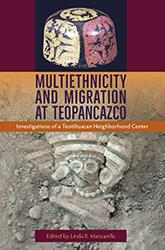Selected columns by the St. Petersburg Times writer, syndicated in over 200 papers nationwide, on topics ranging from race relations and individual responsibility, to education, politics, and a civil society.
Search Results for 'Weeki Wachee Springs mermaid biography archived 2006 pet parrot'
483 results for 'Weeki Wachee Springs mermaid biography archived 2006 pet parrot'
Please note that while you may order forthcoming books at any time, they will not be available for shipment until shortly before publication date
Any corporate history is a suspicious undertaking, and the author writes in the preface that he was wary at the outset, recognizing that "the Times's extraordinary story had taken on mythical dimensions as told by true believers among its executives." The book is nevertheless as objective as biography can be. The author has interwoven Poynter's life and death not only with the tempestuous and highly relevant history of his own family but also with the major themes in the newspaper's evolution, and he locates all of these in the context of national and state history and of journalistic development.
Beginning with the invention of balloons that lifted early explorers into the stratosphere, Ted Spitzmiller describes how humans first came to employ lifting gasses such as hydrogen and helium. He traces the influence of science fiction writers on the development of rocket science, looks at the role of rocket societies in the early twentieth century, and discusses the use of rockets in World War II warfare.
This detailed volume looks at 116 formal burials in Teopancazco, a powerful neighborhood that controlled the distribution of foreign raw materials from Teotihuacan toward Nautla in Veracruz.
The worst ship-bridge collision in U.S. history
A wandering Floridian who made his way home in the early 1970s, John Rothchild writes about the state with the savvy of a native and the perspective of an outsider. His personal and historical travelogue reads alternately like a litany of 20th-century ills and a Monty Python rendering of the Great American Dream. In Florida, both versions are true.
In this exploration of Colombian drug lord Pablo Escobar’s impact on popular culture, Aldona Bialowas Pobutsky shows how Escobar’s legacy inspired the development of narcocultura—television, music, literature, and fashion representing the drug-trafficking lifestyle—in Colombia and around the world.
"Shows that the strategic logic of U.S.-Cuba security cooperation remains so persuasive that it has even been intermittently embraced by such avowed antagonists as Fidel Castro and George W. Bush."--Daniel P. Erikson, Inter-American Dialogue











